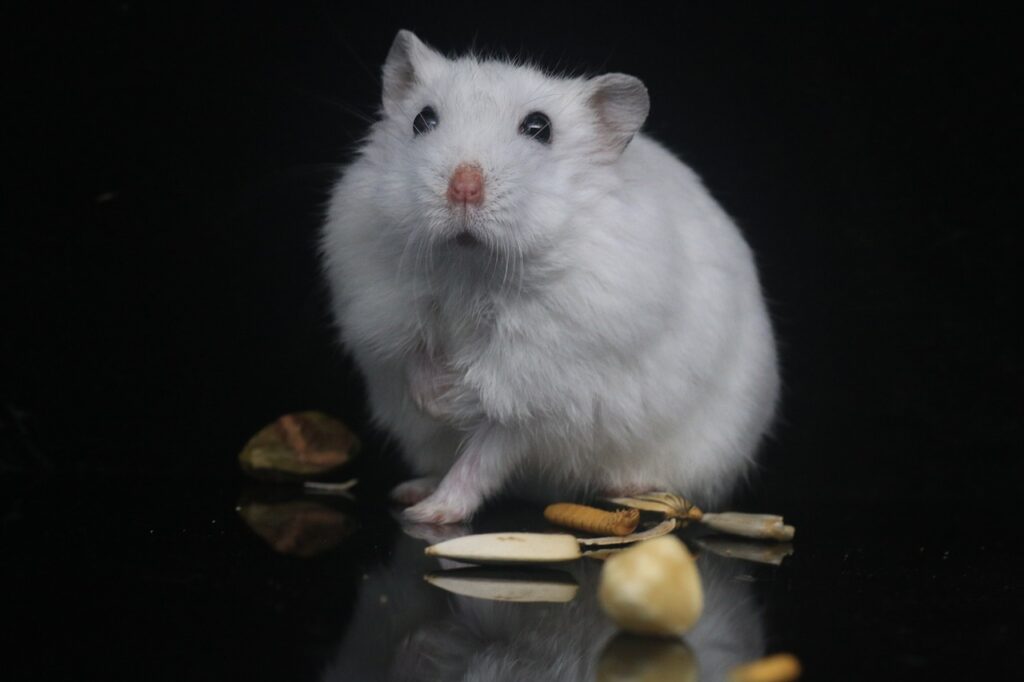Can Hamsters Eat Chicken? — Exploring the Nutritional Benefits of This Protein-Rich Delight
When it comes to keeping our adorable hamsters happy and healthy, their diet plays a crucial role. As pet owners, it’s natural to wonder if our furry friends can indulge in a meal of chicken. In a nutshell, the answer is yes. However, let’s dive deep into the specifics to understand why chicken can be a suitable addition to their diet.
Unveiling the Primary Advantages of Chicken for Hamsters
Chicken, being a lean and protein-rich meat, brings several nutritional benefits to our beloved hamsters. It serves as an excellent source of high-quality protein, which is essential for their growth, tissue repair, and overall well-being. Moreover, chickens are also a good source of vitamins, such as vitamin B6 and B12, which contribute to a healthy nervous system and a strong immune system in our tiny friends.
Additionally, chicken provides essential minerals like iron, zinc, and magnesium, which promote better bone health, increased energy levels, and support various enzymatic functions in hamsters. Since chicken is low in fat, it is an ideal choice for hamsters prone to obesity.
A Guide to Appropriate Frequency and Quantity
While chicken can be a nutritious treat for hamsters, moderation is key. It is recommended to offer small portions of cooked, plain chicken to your furry companion, ensuring it is boneless and skinless. A thumb-rule is to keep it as an occasional addition to their regular diet rather than a staple food item. Offering chicken once or twice a week in small, bite-sized pieces is generally sufficient to meet their dietary needs without overwhelming them.
Potential Cautions When Feeding Chickens to Hamsters
Although chicken is generally safe for hamsters, it’s essential to exercise caution and be aware of a few considerations. Firstly, avoid seasoning the chicken with any additives, spices, or salt, as these can be harmful and even toxic to hamsters. Additionally, remove any bones before serving the chicken to prevent choking hazards.
Furthermore, as with any new food introduced to a pet’s diet, it is advisable to observe your hamster for any signs of allergies or digestive issues. Some hamsters may have specific sensitivities or intolerances to certain proteins. If you notice any adverse reactions, such as diarrhea, bloating, or a lack of appetite, discontinue feeding chicken and consult your veterinarian.
Sharing the Goodness — Chicken for Other Pets
Interestingly, chickens can not only cater to the gastronomic needs of our hamsters but also other pets like dogs and cats. While cats are obligate carnivores and can consume chicken as part of a balanced diet, it is crucial to ensure it is prepared in a manner suitable for feline digestion. Dogs, on the other hand, can enjoy chicken as a protein source, but it should be cooked thoroughly, without any seasoning or bones.
Conclusion
In conclusion, hamsters can indeed relish the goodness of chicken as a part of their diet. This lean meat provides essential proteins, vitamins, and minerals that contribute to their growth, health, and overall well-being. However, responsible feeding is vital to avoid potential pitfalls. Always offer plain, cooked, boneless, and skinless chicken in moderation. Keep a close eye on your hamster’s reaction to ensure they tolerate the protein well. By prioritizing your furry friend’s nutrition, you can provide them with a well-rounded diet that keeps them happy and thriving!





